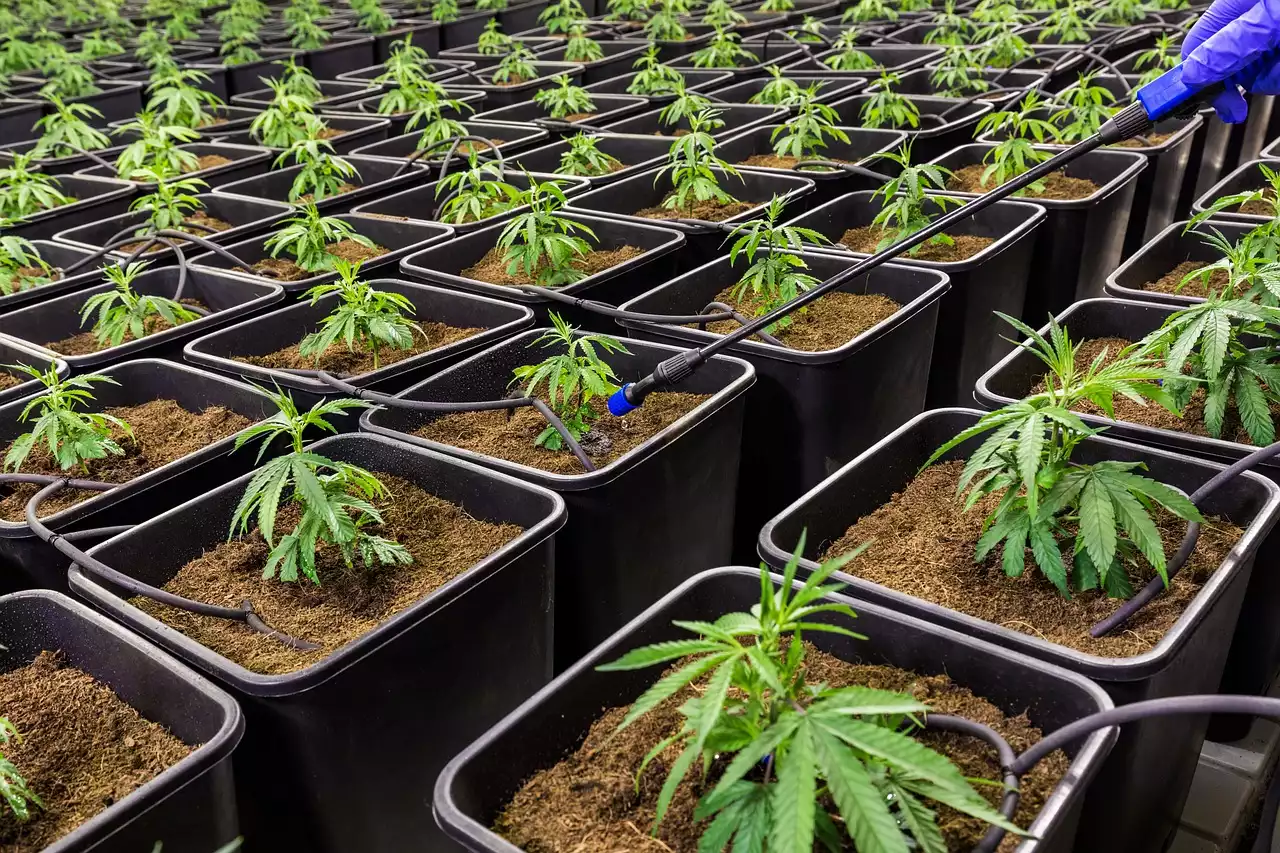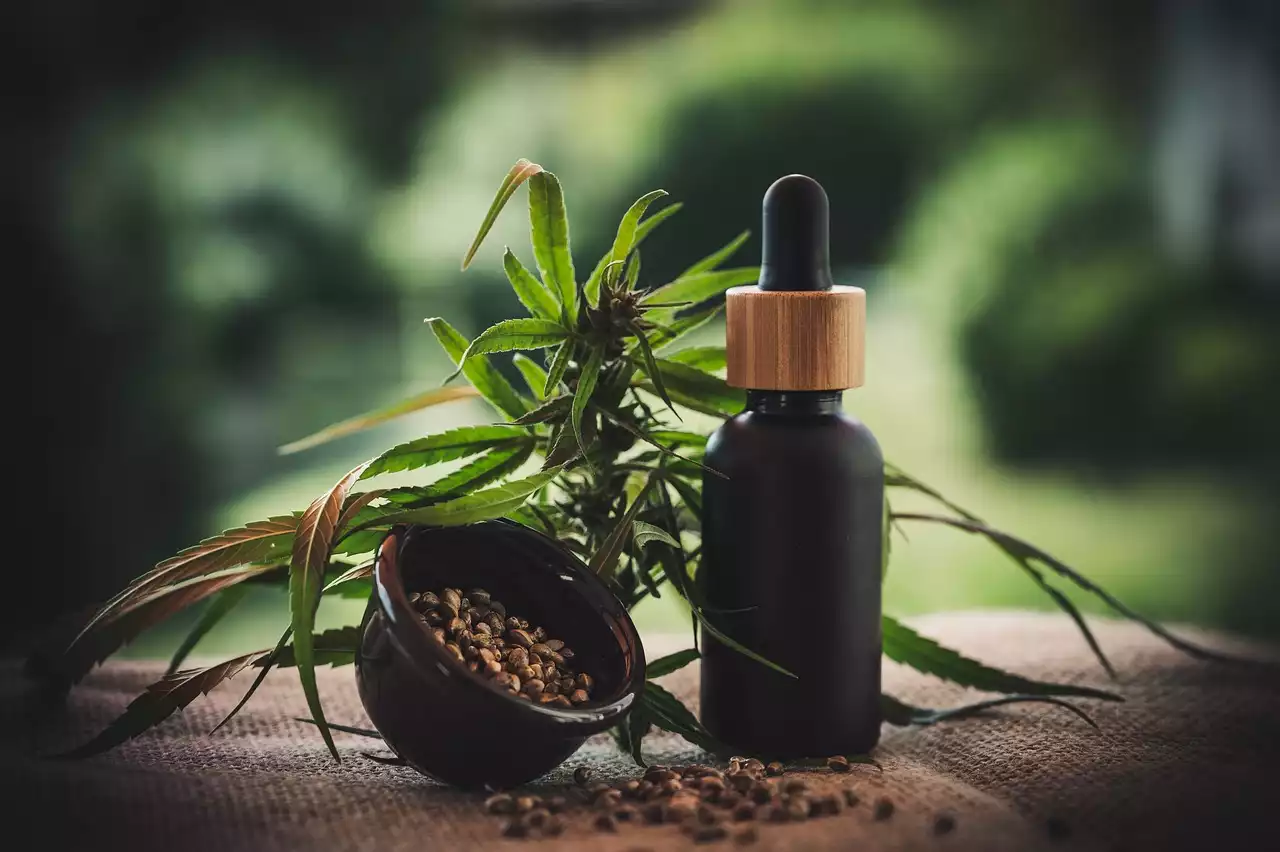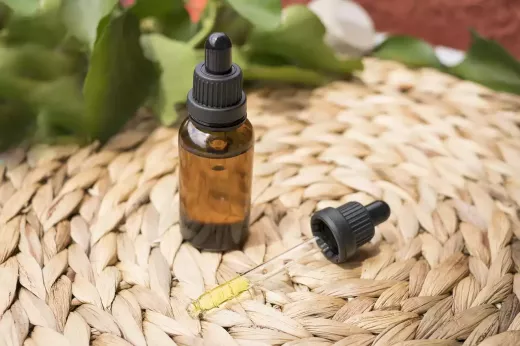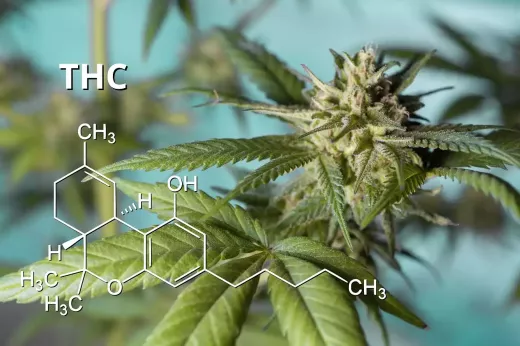Understanding CBD and THC CBD (cannabidiol) and THC (tetrahydrocannabinol) are two of the most well-known cannabinoids found in the cannabis plant. While they share a common origin, they interact with the body in distinct ways, leading to different effects. CBD is non-psychoactive, meaning it doesn't produce a "high," whereas THC is known for its psychoactive properties, resulting in the euphoric sensation often associated with cannabis use. These fundamental differences form the basis of their unique roles and applications.
The chemical structures of CBD and THC also contribute to their varying effects. CBD interacts indirectly with the endocannabinoid system, influencing receptors to promote balance and homeostasis without causing intoxication. On the other hand, THC binds directly to cannabinoid receptors, particularly the CB1 receptors in the brain, leading to its psychoactive effects. Understanding these distinctions is crucial in discerning the diverse impacts of CBD and THC on the body.
The effects of CBD and THC on the body
The effects of CBD and THC on the body are multifaceted and extend beyond their psychoactive properties. CBD is renowned for its potential to alleviate anxiety, reduce inflammation, and mitigate seizures. It has also gained recognition for its neuroprotective properties and potential in treating various neurological disorders. Additionally, CBD has shown promise in addressing pain, insomnia, and even promoting cardiovascular health.
Conversely, THC's psychoactive nature lends itself to recreational use, inducing feelings of euphoria and relaxation. However, it also possesses medicinal properties, such as pain relief, muscle spasm control, and appetite stimulation. Nonetheless, the psychoactive effects of THC may not be suitable for everyone, especially those seeking therapeutic benefits without intoxication. Recognizing the complex interplay between these cannabinoids is pivotal in determining their potential impact on individual wellness.
Medical benefits of CBD and THC
The medical benefits of CBD and THC have garnered widespread attention, prompting extensive research into their therapeutic applications. CBD, in particular, has emerged as a promising candidate for treating various conditions, including epilepsy, anxiety disorders, and chronic pain. Its anxiolytic and antipsychotic properties have sparked interest in exploring its potential for mental health disorders.
Conversely, THC's medicinal potential lies in its ability to alleviate pain, nausea, and vomiting, making it a valuable option for patients undergoing chemotherapy or experiencing chronic pain. Furthermore, THC has demonstrated efficacy in managing symptoms associated with conditions such as multiple sclerosis and inflammatory bowel disease. Understanding the nuanced medical benefits of CBD and THC is instrumental in harnessing their healing properties for holistic wellness.
Legal considerations of CBD and THC
Navigating the legal landscape surrounding CBD and THC can be complex, as regulations vary across different jurisdictions. In many regions, CBD derived from hemp with less than 0.3% THC is federally legal, thanks to the passage of the 2018 Farm Bill in the United States. This has paved the way for the widespread availability of CBD products, ranging from oils and tinctures to edibles and topicals.
Contrastingly, THC remains classified as a controlled substance in numerous jurisdictions, limiting its accessibility and legal usage. However, several states and countries have legalized cannabis for medical and recreational purposes, leading to a burgeoning market for THC-containing products. Navigating the legal considerations surrounding CBD and THC is essential for consumers, healthcare professionals, and businesses operating in the cannabis industry.
CBD and THC in alternative medicine
The integration of CBD and THC into alternative medicine has transformed the landscape of holistic healing, offering natural remedies for various ailments. CBD has found its way into acupuncture and herbal medicine practices, complementing traditional therapies to address pain, inflammation, and stress. Its non-intoxicating nature and versatile forms, such as oils, capsules, and topical solutions, have made it an attractive option in alternative healing modalities.
Similarly, THC's therapeutic potential has sparked interest in alternative medicine circles, particularly in managing chronic pain, insomnia, and mood disorders. Integrating THC into holistic approaches, such as acupuncture and naturopathy, presents opportunities to explore synergistic treatments that harness the entourage effect – a phenomenon where multiple cannabis compounds work together to amplify therapeutic benefits. Embracing the role of CBD and THC in alternative medicine offers a holistic approach to wellness that aligns with the ethos of natural healing.
How to choose between CBD and THC products
When deliberating between CBD and THC products, several factors come into play, including individual wellness goals, desired effects, and legal considerations. For those seeking therapeutic benefits without psychoactive effects, CBD products present a compelling option, offering a diverse range of formulations to suit specific needs. From broad-spectrum CBD to CBD isolate, consumers have the flexibility to choose products tailored to their preferences.
Conversely, individuals seeking the psychoactive effects of THC may explore a spectrum of cannabis products, including flower, edibles, concentrates, and tinctures. However, it's essential to exercise caution and adhere to legal regulations when considering THC-based products, especially in regions where its usage remains restricted. Navigating the selection process between CBD and THC products involves evaluating individual preferences, consulting healthcare professionals, and staying informed about legal frameworks.
CBD and THC in the beauty and wellness
industry The integration of CBD and THC into the beauty and wellness industry has catalyzed a paradigm shift, leading to the development of innovative products designed to enhance skincare, haircare, and overall well-being. CBD-infused skincare products have gained traction for their potential to reduce inflammation, combat acne, and promote skin rejuvenation, appealing to consumers seeking natural and holistic solutions.
Conversely, THC's foray into the beauty and wellness sector has sparked creativity, with infused products targeting relaxation and sensory indulgence. From bath bombs and massage oils to aromatherapy solutions, THC-infused items offer a unique sensory experience, tapping into the therapeutic properties of the cannabinoid. Embracing CBD and THC in the beauty and wellness industry signifies a harmonious fusion of botanical elements and modern skincare, aligning with the growing demand for natural, plant-based alternatives.
Risks and side effects of CBD and THC
While CBD and THC offer a spectrum of potential benefits, it's vital to acknowledge the associated risks and side effects. CBD is generally well-tolerated, with few reported adverse effects, such as drowsiness, dry mouth, and changes in appetite. However, interactions with certain medications may occur, necessitating caution and medical supervision, especially for individuals with pre-existing health conditions.
Conversely, the psychoactive nature of THC can lead to adverse effects, including anxiety, paranoia, impaired coordination, and cognitive impairment, particularly in high doses. Moreover, prolonged use of THC may lead to dependence and withdrawal symptoms in some individuals, underscoring the importance of responsible consumption and informed decision-making. Recognizing the potential risks and side effects of CBD and THC is essential in promoting safe and mindful usage within the realm of wellness.
Research and studies on CBD and THC
The burgeoning interest in CBD and THC has spurred a wealth of research and studies, shedding light on their mechanisms of action, therapeutic potential, and safety profiles. From preclinical investigations to clinical trials, researchers have explored a myriad of applications for CBD and THC, unravelling their impact on various health conditions and physiological processes.
Notably, CBD has garnered attention for its anti-inflammatory, neuroprotective, and anxiolytic properties, prompting extensive research into its potential in treating conditions such as epilepsy, anxiety disorders, and chronic pain. Conversely, studies on THC have elucidated its analgesic, antiemetic, and appetite-stimulating effects, offering insights into its efficacy for managing symptoms associated with cancer treatment and chronic pain. Embracing the wealth of research and studies on CBD and THC fosters a deeper understanding of their therapeutic potential and informs evidence-based decision-making.
Conclusion In conclusion, the intricate
interplay between CBD and THC transcends the realm of cannabis, permeating various facets of health, wellness, and alternative medicine. Understanding their distinctions and interconnectedness empowers individuals to navigate the evolving landscape of cannabinoid-based therapies, fostering informed choices and holistic well-being.
As the allure of CBD and THC continues to captivate consumers and researchers alike, their potential to reshape the paradigms of healthcare and wellness remains undeniable. By demystifying the connection and differences between CBD and THC, this elucidative exploration paves the way for a harmonious integration of these cannabinoids into the fabric of modern wellness, offering a tapestry of natural remedies and therapeutic possibilities.







